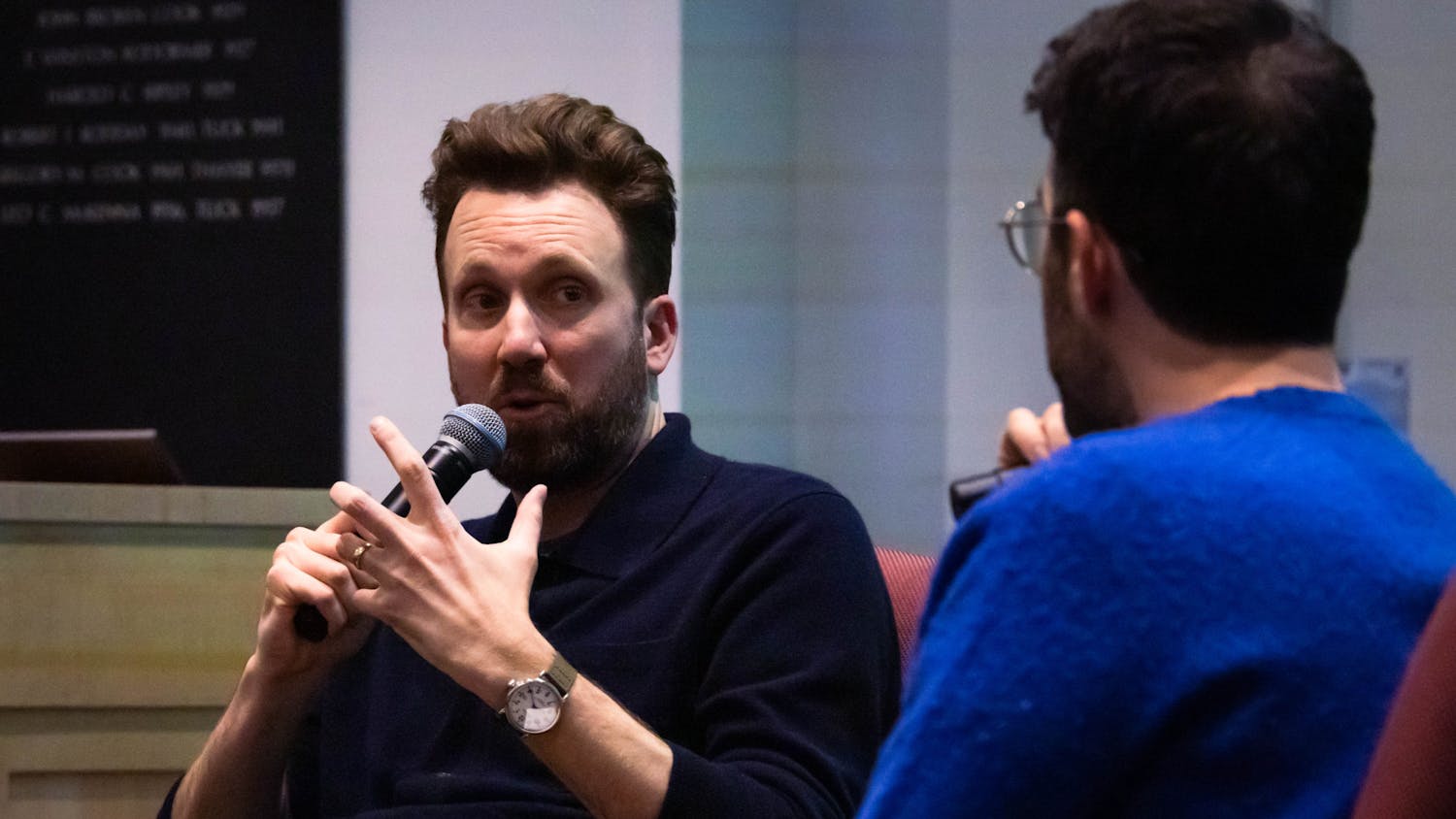This past Saturday, 49 students spent up to 12 hours designing projects and building programs at HackDay, an event hosted by HackDartmouth at the Dartmouth Entrepreneurial Network. This year’s event marks the first time that HackDartmouth has held a half-day programming event as opposed to a typical 24-hour hackathon in its two-year history.
“A hackathon is an event for programmers, designers and other kinds of people with technical skills to come together and create projects that are then judged in consideration for prizes,” said Helen He ’18, who co-organized the event with Robert Sayegh ’18.
Students either divided into groups or signed up for the competition as individuals. Participants could either compete in a beginner or advanced group, depending on their prior levels of coding experience, Steven Chun ’19 said.
Chun and Laya Indukuri ’19 won the beginner group competition with a website designed for Dartmouth students that allows people to buy and sell their items.
“In a closed community, people are getting rid of stuff that other people want and we’re just connecting those people,” Chun said. “I just want to make something cool, and if other people can use something cool that I make, then that’s even cooler.”
Indukuri noted that the judges were impressed by the program’s design and practicality.
“It was really clever. They were really learning the whole thing as they were going,” said Lorie Loeb, a competition judge and computer science professor.
Yining Chen ’18, Jason Feng ’17, Patrick Xu ’17 and Armin Mahban ’17 won the experienced category with Apex — an iOS app that helps users learn about Dartmouth Outing Club trips. Apex users can find additional information about DOC trips and sign up for them.
“It was completely functional and it looked gorgeous,” Loeb said. “It was pretty much ready for the App Store. It was amazing for 12 hours worth of code.”
Feng, an active member of the DOC, said he understood the need for this type of app. He highlighted the business logic within the app, as well as its practicality.
Mahban said that while he and Xu had a decent amount of experience with iOS development, Chen and Feng did not. He pointed toward the app’s design as a major strength.
“I think where ours stood out was in its polish that we could get in a short amount of time,” Mahban said. “So while no one’s app is completely finished, I think we were able to put a really nice presentation and make it seem perhaps more polished than it actually was.”
As for the future of the app, he said that if it were something the DOC actually wanted, the group could move forward and complete the app.
Judging criteria was based on design, usage, creativity, impactfulness and technicality of the project. Tim Tregubov, the technical director of the DALI lab,served as a judge alongside Loeb. Prizes included Xbox Ones, drones, PlayStation 4s, Beats By Dre headphones and Fire TV Sticks.
Loeb said it was great to see so many women competing in the event. Sixteen out of the 49 participants were women.
“Many other schools institute a 50/50 rule for gender. Eventually we would like to do that as well,” He said.
He noted that Dartmouth’s hackathon is limited in its size and could host 300 people at most. Dartmouth was the last Ivy League school to host a hackathon, having not established one prior to last year.
“Beginners are intimidated at the prospect of participating at such a long event,” He said. “I think going forward one of the things that we want to place emphasis on is making our hackathon more beginner-friendly.”
This year’s HackDay differed from last year’s hackathon in several ways. Whereas last year’s events were attended by many students from other universities, HackDay was primarily attended by Dartmouth students. In the past, several corporations served as sponsors, but Saturday’s sponsors were all from within the Dartmouth community. HackDay was overwhelmingly attended by undergraduate students, while the last two events were comprised of many graduate students.
“Because it’s a long event, especially during 24 hours there are a lot of people who get tired,” He said. “But with this one, because it was 12 hours, people actually had the endurance to stay the entire course of the event.”
HackDartmouth hosted workshops the night before the main event to help participants familiarize themselves with the latest coding technology.
Organizers, He noted, wanted the event to be more learning focused as opposed to prize focused.
HackDartmouth has already started planning their next event, He said. The club plans to have one large scale Hackathon and one shorter HackDay every year.
Steven Chun ’19 is a member of The Dartmouth opinion staff. Laya Indukuri ’19 is a member of The Dartmouth design staff.



